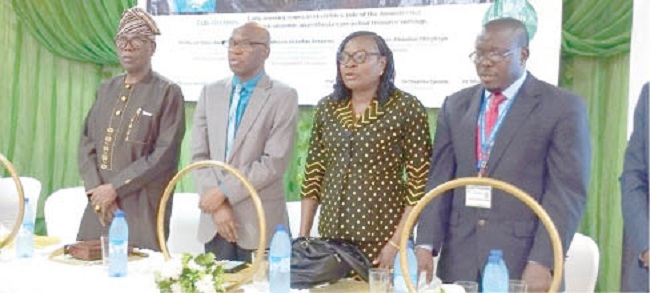A former Chief Medical Director of the University College Hospital (UCH), Ibadan, Professor Abiodun Ilesanmi, has stated that, thanks to current procedures and technology, labour pain is no longer an unavoidable pain or a sign of womanhood.
Professor Ilesanmi, a consultant obstetrician and gynaecologist, stated that anaesthesia can reduce labour discomfort and make baby delivery more comfortable.
The don, who presided over the 11th Scientific Conference and annual general meeting of the Society of Obstetric Anaesthetists of Nigeria (SOAN), stated that while the mother’s delivery is usually associated with pain and discomfort, it is now handled by a variety of modern techniques, including anaesthesia.
“In the past, women were trained and encouraged to tolerate labour pains because they considered it was their duty, unavoidable, and a sign of womanhood. However, with the introduction of contemporary techniques and technology, things have altered over the years. Nowadays, we have anaesthetic accessible to alleviate labour discomfort and keep delivery comfortable.
“The approaches are now non-pharmacological through patient education, labour preparation, family and spouse support, hypnosis, breathing exercises, and other methods. Also coming to the fore now is the use of acupuncture, acupressure, baths underwater, and audio anaesthesia.”
Professor Ilesanmi, however, advocated the development and use of non-pharmacological methods for obstetric care in rural centres, including in low-resource countries like Nigeria.
Professor Bukola Adesina, in a keynote address entitled “Maternal Mortality: Maternal Early Warning Systems, Another Tool to Attainment of SDG 3,” declared that Nigeria’s 40 million women of childbearing age suffer a disproportionally high level of health issues surrounding birth.
Professor Adesina, also a specialist obstetrician and gynaecologist, said most maternal fatalities are preventable, and barriers to accessing quality maternal health treatments must be recognised and addressed at both the health system and social levels.
According to her, the maternal early warning systems can help to improve early recognition of pregnant women at risk of conditions that can contribute to maternal morbidity and mortality, such as excess bleeding after childbirth, sepsis, preeclampsia, and cardiovascular complications, and facilitate early interventions.
“The maternal early warning systems (MEWS) represent a promising strategy for reducing severe maternal outcomes. MEWS is only a part of the management of a critically ill pregnant woman. Outcomes will depend on appropriate escalation of care and management provided when MEWS trigger,” she added.
The President of SOAN, Professor Elizabeth Ogboli-Nwasor, in a remark, stated that the association’s common ethos is to define the practice of obstetric anaesthesia in Nigeria and beyond with the message of working diligently to contribute value to patient safety.
“We are striving to advance the practice of anaesthesia pain relief and the care of the mother and child before, during, and after surgery,” she added.
Read Also: Fubara seeks royal partnership for peace, development
